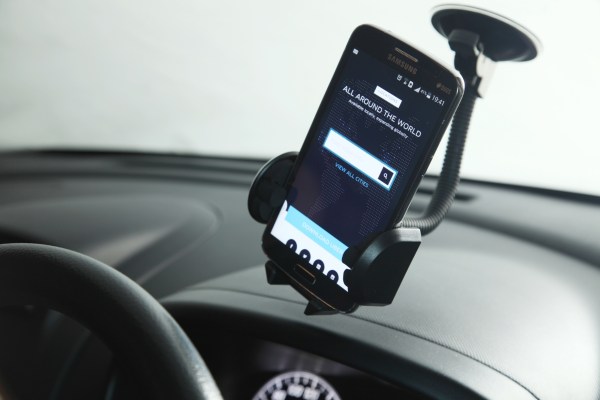Uber is celebrating a win in Jakarta, the capital city of Indonesia, after it was given approval to operate as a fully legal entity.
Indonesia is the world’s fourth most populous country, with a population of over 250 million, while Jakarta is a megacity in its own right — housing upwards of 10 million people. Those figures combined with growing smartphone sales are attractive to Uber, and a glut of other tech companies — but so far the U.S. taxi app company has run into numerous obstacles in Indonesia.
In August 2014, Jakarta Deputy Governor Basuki Tjahaja Purnama ordered a ban on Uber’s service over the company’s alleged failure to hold necessary permits and pay taxes. This past summer, police detained five UberX drivers in Jakarta over permit issues, while Uber recently accused local police of discriminating against it.
Today, however, Uber’s situation has improved significantly. Basuki, who is now governor of Jakarta, went on record to endorse Uber and other taxi app companies.
From my understanding, the main reason why Uber operates in Jakarta is based on the existence of huge public demand for safe, reliable and affordable means of transportation. Ride sharing, like Uber, has received positive and tremendous response from users because of its ability to provide consumers with those three pivotal factors — safe, reliable and affordable means of transportation — through the technology platform.
Uber said that — in order to operate legitimately — it is now required to have a legal entity in Indonesia, pay tax, offer “adequate” insurance, and ensure that drivers regularly have their vehicles maintained and inspected.
Mike Brown, who leads the U.S firm’s business in Asia Pacific, was understandably bullish about the governor’s endorsement.
“It is very encouraging that the ride-sharing industry in Jakarta has finally received a green light from Governor Ahok to operate an environment with regulatory certainty and conducive to success,” Brown said in a statement.
The Uber exec even issued an apology for past business efforts in Indonesia.
“As a company we have made some mistakes in the past and apologise for that. But we are also quick to learn and we fully understand the requirements laid out by the Governor and will cooperate with his office BKPM and DISHUB to ensure Uber complies with all requirements,” he added.
Uber’s initial entry into Asia saw the company suffer problems in a number of countries, including China, Korea, India, Indonesia, Thailand, and Vietnam to name just a few. Today’s news from Indonesia, coupled with a recent development in the Philippines where the government is working on a framework from ride-sharing service regulation and some progress in China, shows that the company and the industry itself is beginning to make headway as it seeks to become a legitimate and mainstream transportation service.
Update: GrabTaxi’s GrabCar business provided TechCrunch with its own statement regarding the governor’s new approach to ride-sharing services:
GrabCar welcomes the statement made by the Governor of Jakarta Basuki Tjahaja Purnama (Ahok) on allowing ride-sharing apps to operate in Jakarta. GrabCar respects the Jakarta government’s legal framework and is a service provided by a registered local entity. We strive to set the standards on safety, and thank Ahok for recognising GrabCar as the company that other industry players should emulate.
As a technology partner to licensed transportation companies registered with the Indonesian Car Rental Association (PPRI), GrabCar has always been compliant to Dishub’s requirements. We agree with Ahok’s call to raise the safety standards for Indonesian commuters – and are pleased that we have raised the bar for the industry. GrabCar provides an additional Personal Accidental Insurance for our drivers and passengers, to provide for peace of mind to Indonesian commuters. All drivers also undergo stringent background checks and training to ensure the highest safety and service standards are met.
